Tallinn is a popular port of call on Baltic Sea cruises. Founded in 1154, this historic city lies on the northern coast of Estonia and is the country’s hub for culture and tourism, as well as its capital.
But what are the best things to see if you are visiting Tallinn on a cruise?
To help you make the most of your day on-shore, here’s my tried and tested Tallinn itinerary. It includes essential practical tips, including how to get from the cruise terminal as well as my pick of what to see and where to eat.
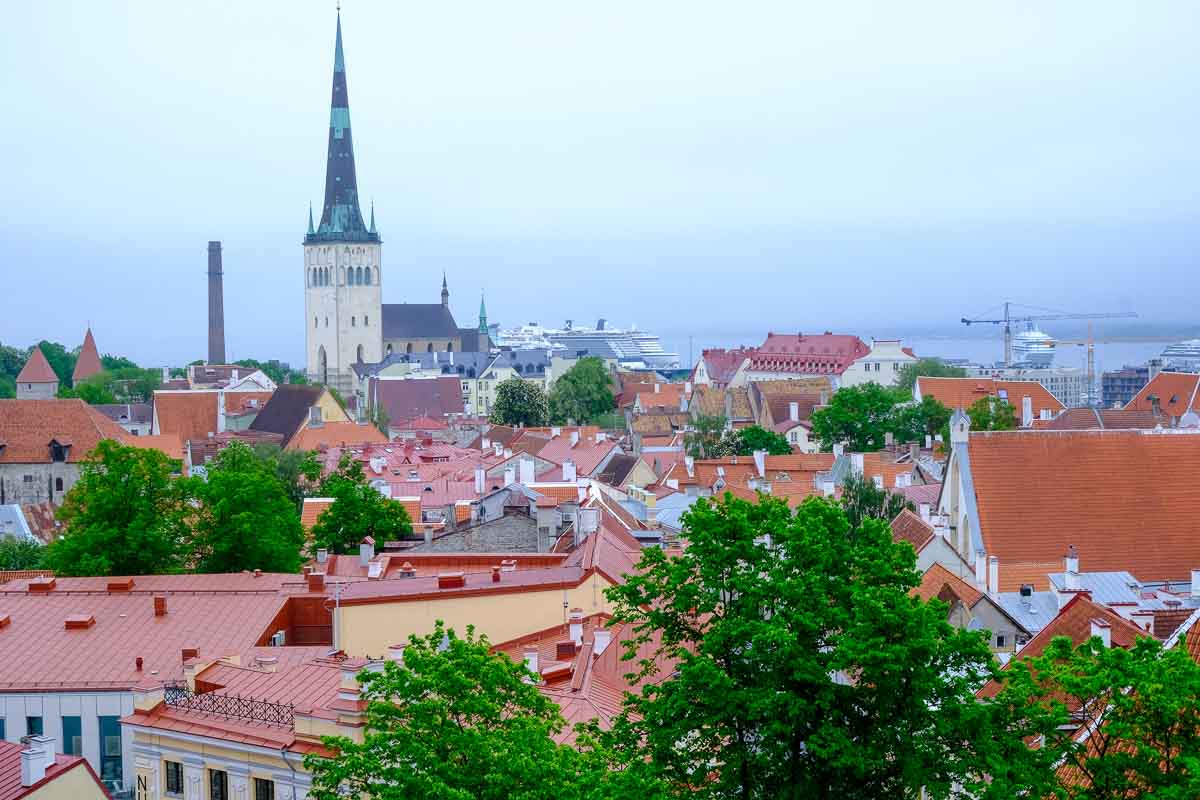
Some articles on this website contain affiliate links. This means that I may earn a small commission if you make a purchase through these links. As an Amazon Associate, I earn from qualifying purchases. Read the full disclosure here.
How I Visited Tallinn on a Cruise
Tallinn was the second port of call on my 2-week Baltic Capitals cruise
- Cruise operator: Celebrity Cruises
- Cruise ship: Celebrity Silhouette
- Time in port: 10 am – 6 pm
I spent the morning exploring the Old Town on a walking tour. After lunch, I walked across the railway tracks to explore Telliskivi and Kalamaja.
One Day Tallinn Itinerary
Think of your day in Tallinn as one of two halves.
Visitors justifiably swoon over this city for its perfectly intact medieval centre. But there is more to Tallinn’s charms than its UNESCO-listed Old Town.
Cross its railway tracks and you will discover a very different side of the city. Telliskivi Creative City with its street art, craft beer and designer studios, and the iconic wooden buildings of Kalamaja offer a refreshing alternative to the cutesy appeal of Tallinn’s medieval centre.
I joined the Tallinn in a Nutshell free walking tour. Over two hours, Kadri showed us the highlights of Tallinn and took us through her country’s history from medieval times, through the Soviet period right up to modern Estonia.
There is no charge for this walking tour although tips are welcome.
Tallinn’s Lower Town wall
Tallinn’s Old Town is split into the Lower Town and its Upper Town, 20 – 30 meters above the Lower Town. We started our walking tour at Tallinn’s Lower Town city wall.
Originally 2.5 km long, this once boasted 45 defensive towers. However, it fell victim to bombing raids in 1944 that destroyed more than half of Tallinn’s city centre and around 10% of its Old Town.
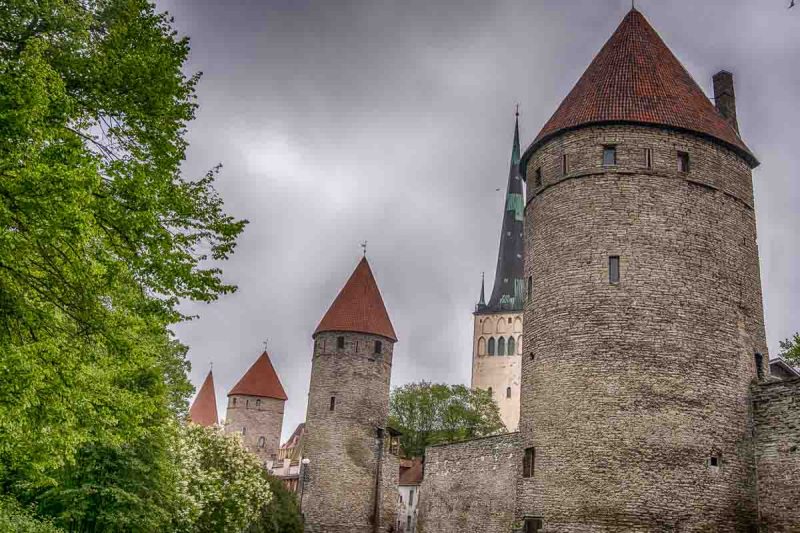
More than half of Tallinn’s Lower Town wall has been magnificently preserved as a city wall, including 26 towers and two gates.
Danish King’s Garden
According to local legend, this is where a flag descended from the sky during the Danish invasion. It was this flag that made fortune smile upon King Valdemar II, and it became the national flag of Denmark.
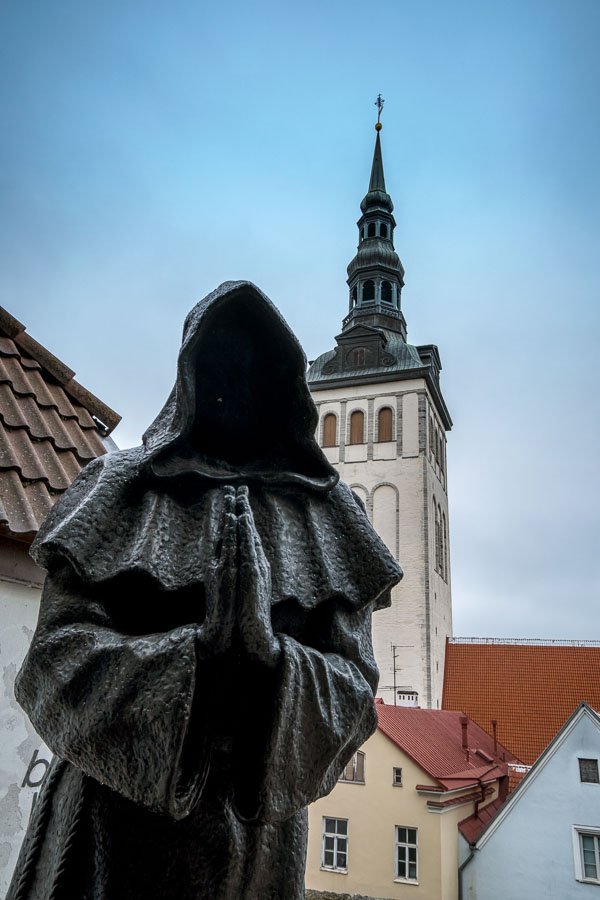
The sculptures of three monks standing in the garden are a recent addition. They were a present to the city from an Estonian businessman who thought that Tallinn did not have enough statues.
Alexander Nevsky Cathedral
This elaborate Russian Orthodox church was completed in 1900 during a period of Russification across the Baltic states.
Following Estonia’s first independence in 1918, there was an intensive program of de-Russification. Although it was relatively easy to strip out statues and monuments, de-Russifying buildings such as Alexander Nevsky Cathedral wasn’t so straightforward.
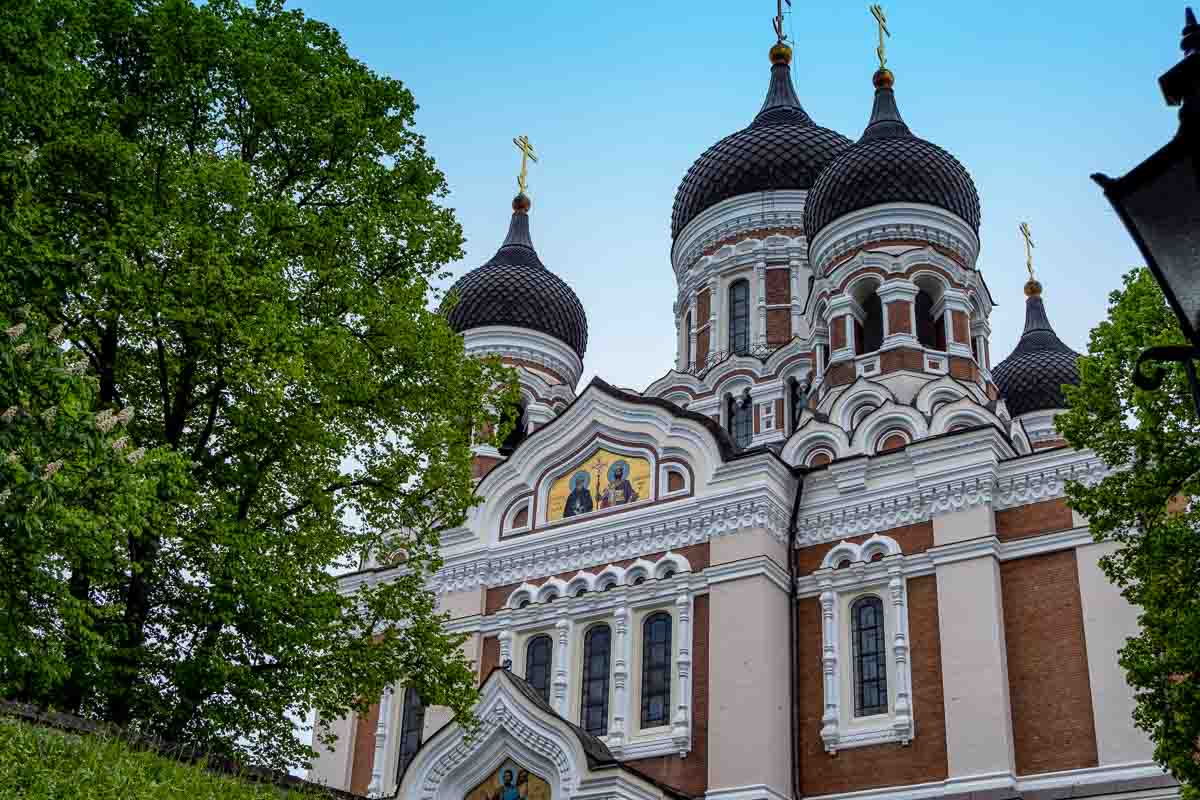
By the time Estonia’s second independence came around, there was an acceptance that this was the country’s cultural heritage. This is the main church for Russians living in Tallinn.
St Mary’s Lutheran Cathedral
Although Lutheranism is the main religion of Estonia, it is not the biggest. At the last count, 96% of the country’s Russian population were regular churchgoers.
This contrasts with just 10% of ethnic Estonians attending church regularly. In other news, did you know that 69% of Estonians believe that trees have souls?
Compared to the grandeur of Alexander Nevsky Cathedral, St Mary’s Lutheran Cathedral is plain inside and out. However, it is noted for the elaborate wooden coats of arms of Estonian nobility covering its whitewashed walls.
You can step inside for the price of a small donation.
Tallinn’s Upper Town Wall
Linking nine of the city’s remaining 26 towers, this is the classic Tallinn photo stop. Have your camera ready for those sweeping views over the Old Town’s red rooftops.
You should also have a chance to say hello to one of Tallinn’s most famous residents, Steven Seagull (geddit?). He even has his own Instagram hashtag (#steventheseagull).
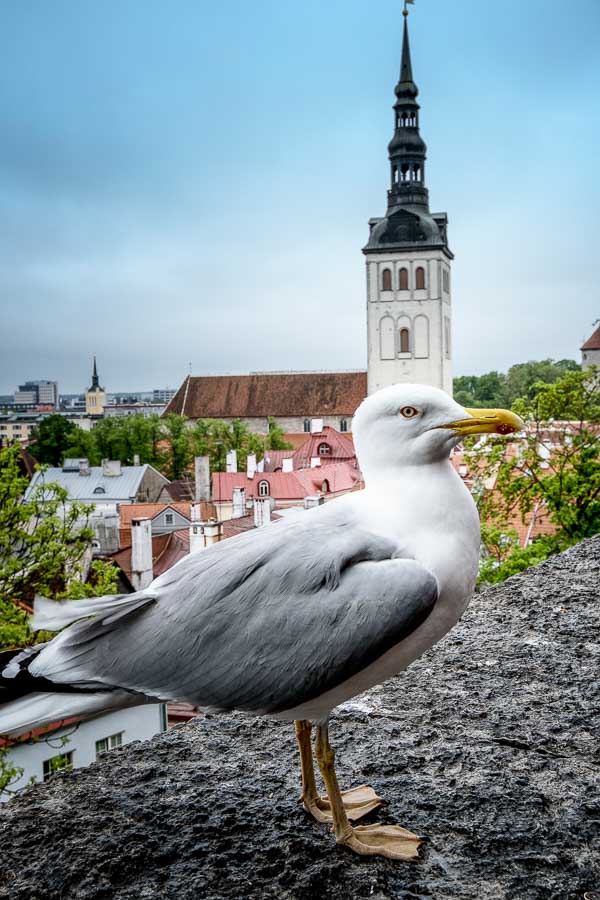
Tallinn Town Hall Square
Descending to the Lower Town, pass by enticing shops and cafes to reach Tallinn’s beating heart, its Town Hall Square.
Dating from the 14th Century, the southern side of Tallinn Town Hall Square is dominated by the Gothic town hall, the only surviving example in Northern Europe.
The Town Hall Square is also home to a market and is a great place to pick up souvenirs.
Town Hall Pharmacy
As a pharmacist, I felt that it would be unprofessional not to visit what is thought to be the oldest operating pharmacy in Europe. The Town Hall Pharmacy has concocted cures since 1422 and is still going.
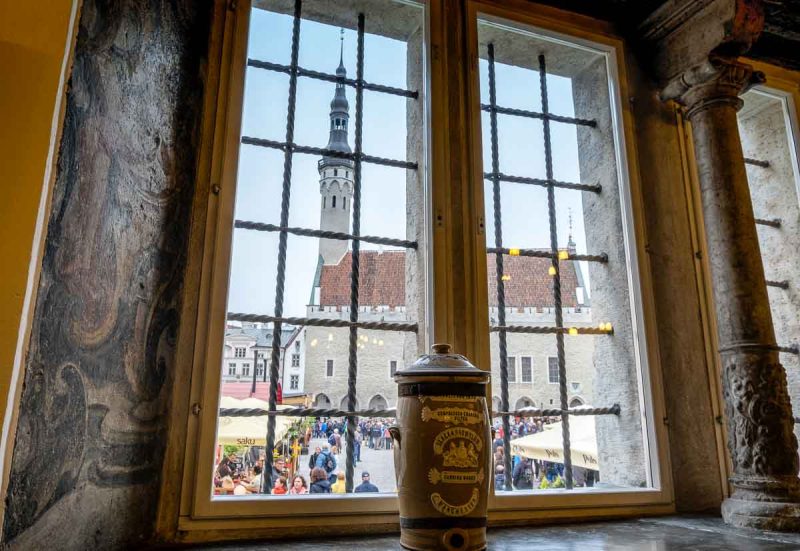
In addition to displaying historic pills and potions – black cat’s blood anyone? – it is here that you can pick up a cure for a broken heart. This candy-topped piece of marzipan is guaranteed to make the break-up pain go away. Or so they say.
Kadri had advised us to steer clear of the tourist traps on Tallinn’s Town Hall Square. Instead, she recommended trying one of the restaurants on nearby Rataskaevu.
I recommend Von Krahli Baar, at Rataskaevu 10, a relaxed restaurant with friendly service. I enjoyed an excellent seafood crepe washed down with a local Kosk beer.
Exploring Kalamaja and Telliskivi
Sated from lunch, it’s time to explore a different side of Tallinn. On the other side of the train station is Kalamaja, hipster central.
This up-and-coming Bohemian district – literal translation ‘fish house’ – was founded in the 14th Century as a fishing village. Sandwiched between Tallinn’s Old Town and the coast, this contains some architectural gems.
Kalamaja’s candy-coloured wooden buildings built during Estonia’s brief first period of independence are typical Tallinn houses.
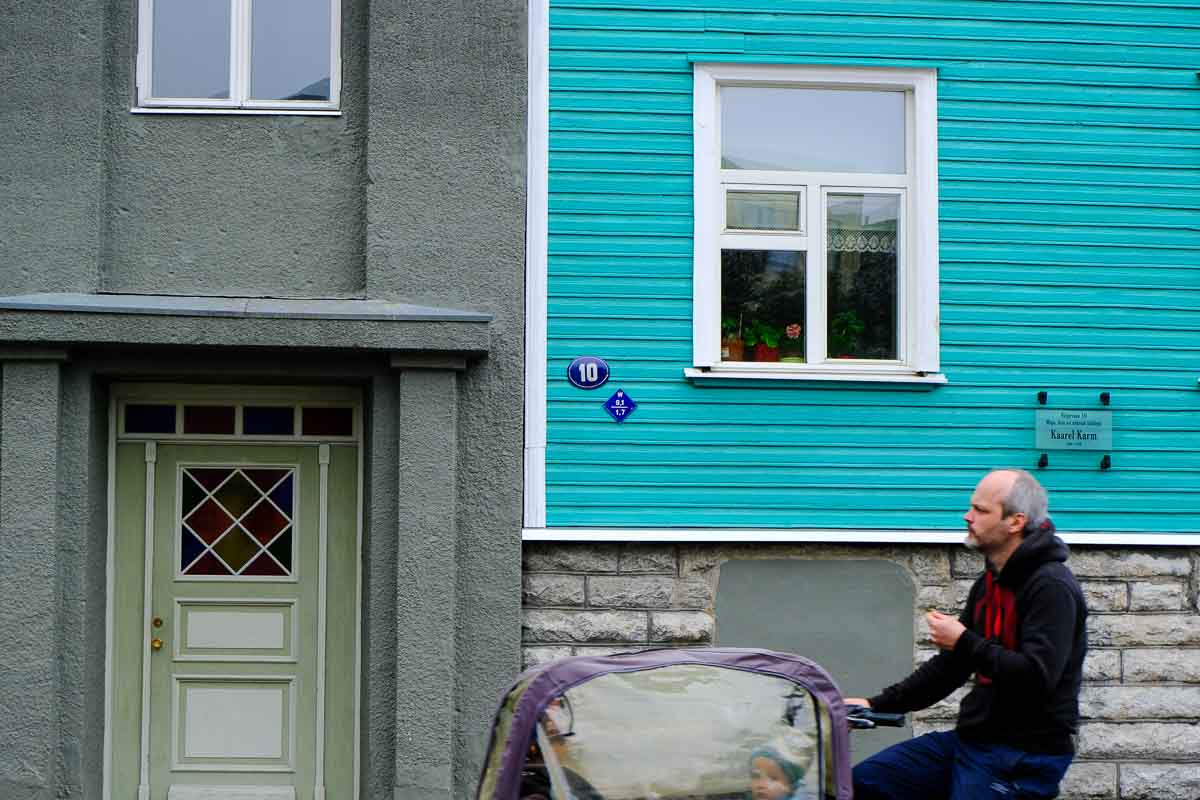
At the heart of Kalamaja is Telliskivi, a former industrial area used in Soviet times to produce war equipment for trains, planes and ships. Today, the renovated old factory buildings are home to a thriving restaurant scene, shops and co-working spaces for start-ups.
This is also a great area to hunt down street art.
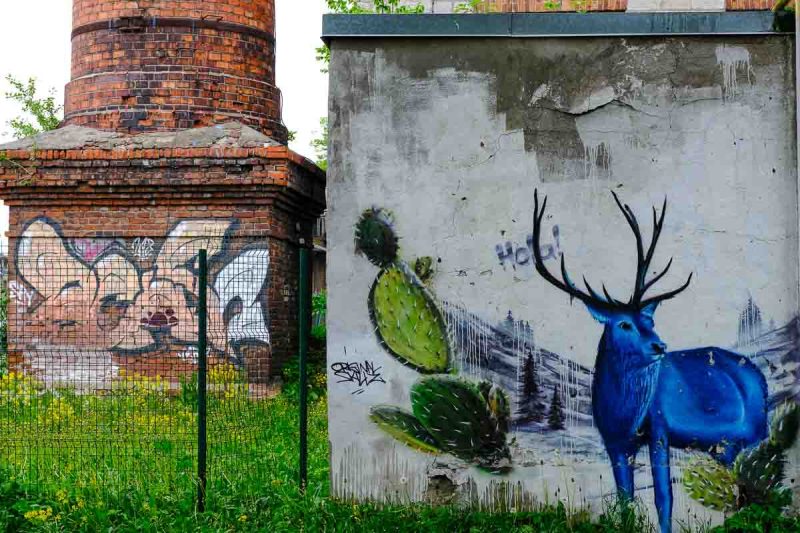
Getting to Tallinn’s Old Town from the Cruise Terminal
Most cruise ships dock at the Old City Harbour (Tallinn Passenger Port) in the downtown area of the city. It’s an easy 1 km walk to the edge of the Old Town.
Also, as most of Tallinn’s highlights are in a relatively compact area, it is very walkable. Your two feet are the best way to get around and see the sights.
Here are your options for getting from the cruise terminal to Tallinn’s Old Town.
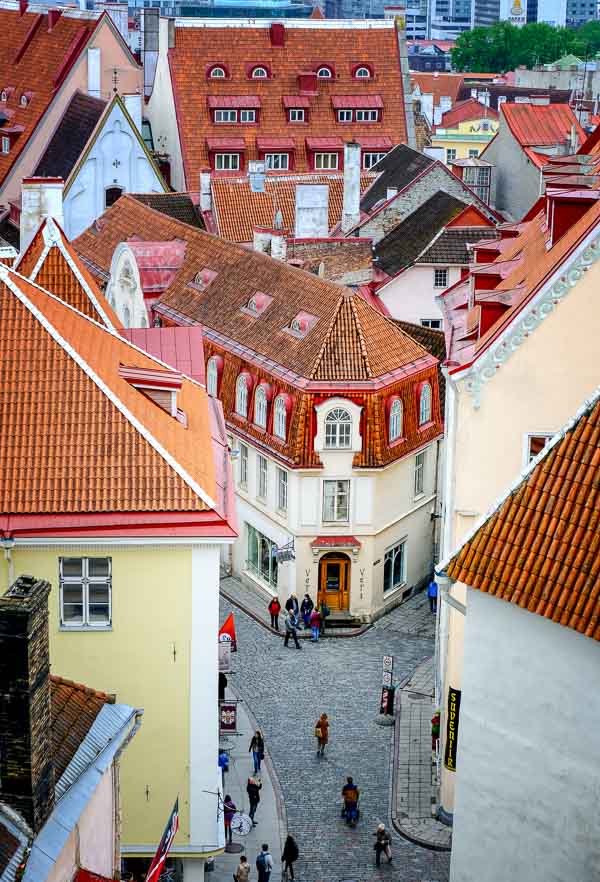
Option 1: Walk from the cruise terminal to Tallinn’s Old Town
I walked from the cruise terminal to the Old Town. At an easy pace, this took me around 15 minutes.
The walk is clearly signposted and – trust me – you won’t be the only person taking this stroll.
Option 2: Use public transport to get from the cruise terminal to Tallinn’s Old Town
Public transport is of limited use here.
Although Bus #2 will bring you to the city centre it does not stop at the cruise terminal. You will need to pick it up at the closest public transport stop on Sadama Street in front of Terminal A. The service runs 2 – 4 times an hour.
Option 3: Use the Cruise Shuttle Service
Most cruise lines offer a frequent shuttle service for a small charge.
Option 4: Use the hop-on-hop-off bus
Inevitably, there is also a hop-on-hop-off (HOHO) bus. Given the size of Tallinn’s Old Town, this is likely to be of value only if you plan to visit the city’s suburbs.
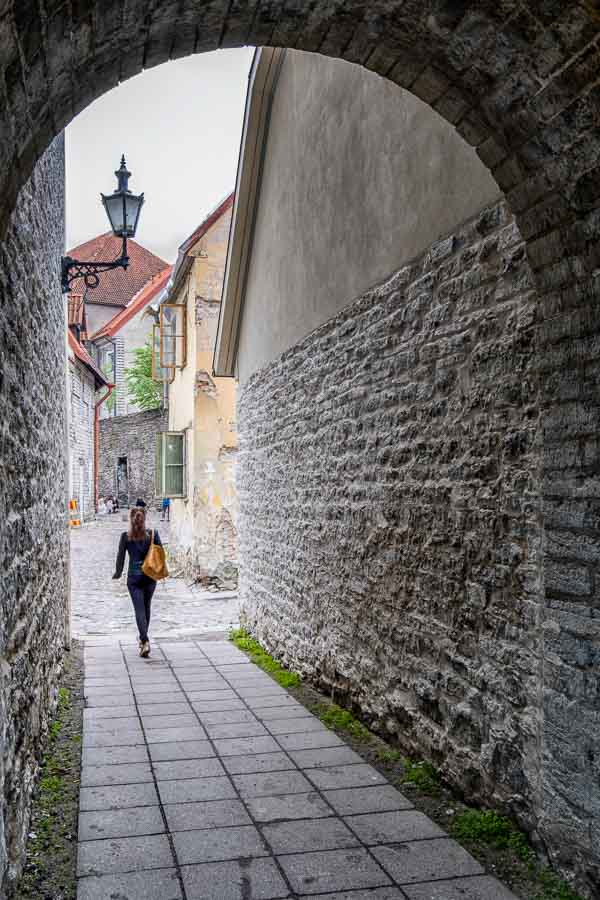
Is the Tallinn Card Worth Buying?
The Tallinn Card is a discount card that gives you free admission to over 50 of Tallinn’s tourist attractions, free public transport and discounts on sightseeing tours, shops and restaurants.
As I was in Tallinn for just one day, and would not have time to visit any of the city’s museums, I felt I would not get value out of the card. However, depending on how long you are in port and your sightseeing plans, you might arrive at a different conclusion.
Think about where you might be able to visit and how much individual tickets and transport will cost compared with the cost of the Tallinn Card.
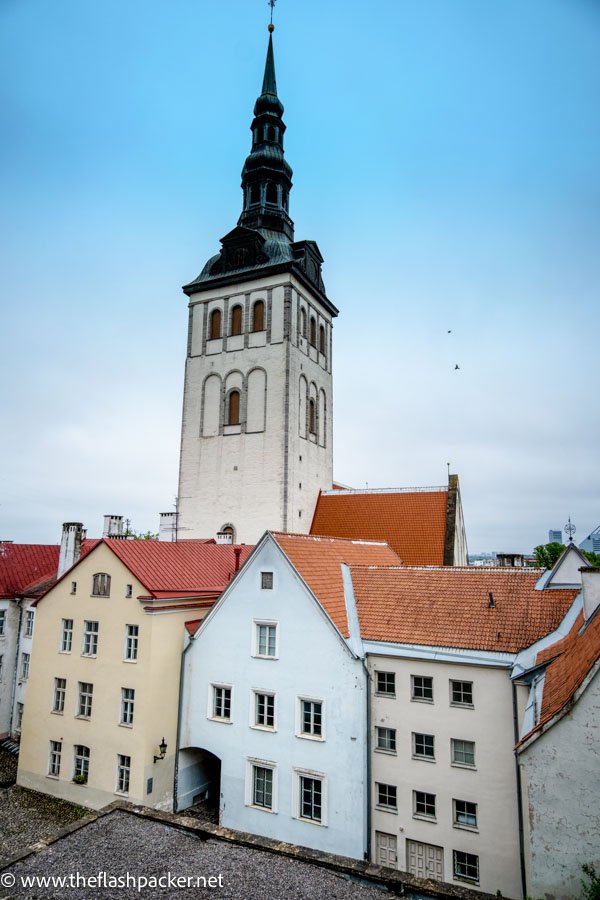
Enjoy your day in Tallinn
Tallinn is sightseeing heaven and was one of the highlights of my Baltic Sea cruise. Although I had just seven hours there, I felt I got a lot out of it.
With good reason, most people visit Tallinn for its rich history and perfectly preserved cobblestoned medieval centre. The streetscapes of the Old Town are ridiculously photogenic, crammed with merchants’ houses and picturesque churches.
However, in their own way, Kalamaja and Telliskivi were equally compelling and their urban cool offered a contrasting experience. In my view, they are an essential part of any 1-day Tallinn itinerary.
This hipster district wasn’t on my radar before I arrived in Tallinn and was recommended by Kadri, our walking tour guide. You can’t beat local knowledge.
But there’s one more reason to consider visiting Kalamaja and Telliskivi. Estonia is a popular stop for cruise ships and there were four in port when I visited Tallinn. That is a lot of people in the city’s historic centre.
On the other side of the railway tracks, it was a different story. I saw, at the very most, ten other tourists when I was wandering the streets of Kalamaja.
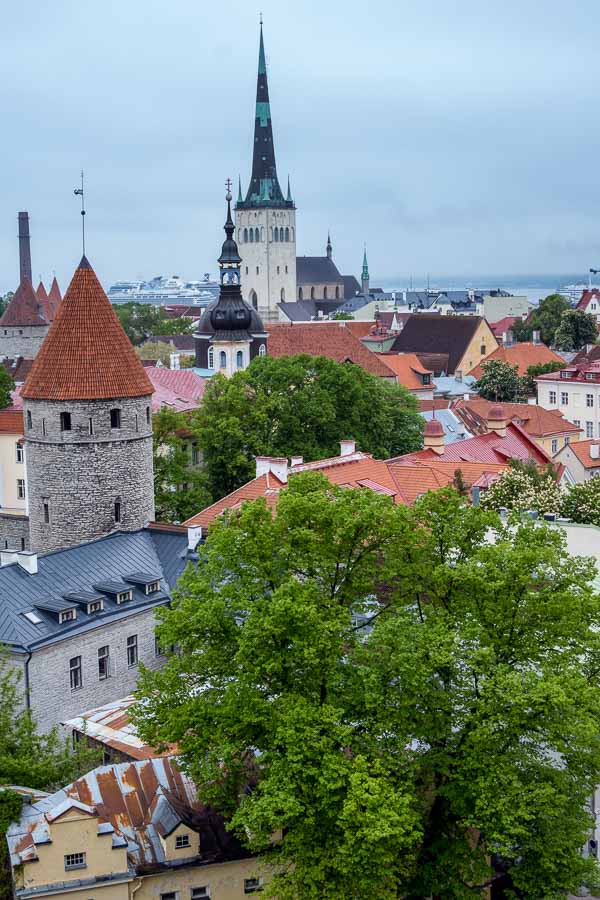
Packing a good guidebook to allow you to explore the ports of call on a Baltic Sea cruise independently is a wise move. I can recommend the excellent Lonely Planet Cruise Ports: Scandinavia & Northern Europe that I used when I visited these ports.
If you have found this itinerary helpful, take a look at my guides to the other ports of call on this cruise:
- One Day in Rostock & Warnemünde, Germany: A Perfect DIY Cruise Excursion
- Visiting St. Petersburg on a Cruise Ship: The Ultimate Guide
- One Day in Stockholm, Sweden
- One Day in Helsinki from a Cruise: A Walking Tour
- One Day in Copenhagen: 6 Best Things to Do On a Cruise Stop
Finally, if you are new to cruising, I also have a guide to planning your first cruise and advice on which cruise cabins to avoid. If you are cruising solo, take a look at my lowdown on single cabins.


About Bridget
Bridget Coleman has been a passionate traveller for more than 30 years. She has visited 70+ countries, most as a solo traveller.
Articles on this site reflect her first-hand experiences.
To get in touch, email her at hello@theflashpacker.net or follow her on social media.
